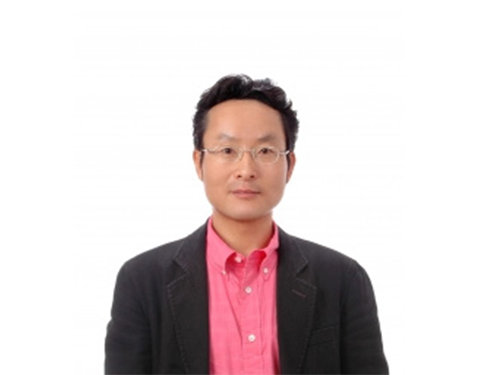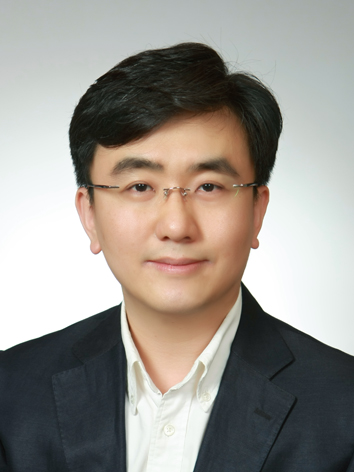Biosensors
-
 Professor Hyun Gyu Park Appointed as Associate Editor for Biosensors and Bioelectronics
Professor Hyun Gyu Park from the Department of Chemical and Biomolecular Engineering was appointed as an associate editor for Biosensors and Bioelectronics, an international journal published by Elsevier.
Biosensors and Bioelectronics is one of the top SCI journals in the fields of chemistry and analytical science (IF 9.518 as of 2018). Professor Park was recognized and appointed as the associate editor for this journal due to his outstanding research achievements in the fields of nucleic acid engineering, biosensors, and nanobiotechnology.
Professor Park will serve as the associate editor from this October until December 2021.
(END)
2019.10.01 View 8682
Professor Hyun Gyu Park Appointed as Associate Editor for Biosensors and Bioelectronics
Professor Hyun Gyu Park from the Department of Chemical and Biomolecular Engineering was appointed as an associate editor for Biosensors and Bioelectronics, an international journal published by Elsevier.
Biosensors and Bioelectronics is one of the top SCI journals in the fields of chemistry and analytical science (IF 9.518 as of 2018). Professor Park was recognized and appointed as the associate editor for this journal due to his outstanding research achievements in the fields of nucleic acid engineering, biosensors, and nanobiotechnology.
Professor Park will serve as the associate editor from this October until December 2021.
(END)
2019.10.01 View 8682 -
 Professor Choi Chul Hui appointed as editor-in-chief of Nanobiosensors in a disease diagnosis magazine
Professor Choi Chul Hui of the Department of Biological and Brain Engineering has been appointed the editor-in-chief of Nanobiosensors, an international medical magazine that concentrates on disease diagnosis.
As the editor-in-chief, Professor Choi will be involved in dissertation evaluations and overall direction of the magazine.
Professor Choi is one of the leading authorities in the field of clinical medicine and has published 60 SCI level dissertations in the fields of cell biology, computational biology, and bio-optics.
He is also the executive director of the KAIST BioImaging Research Center, and his research lab focuses on cell signals and bio imaging. Professor Choi is researching the generation process of degenerative diseases like arteriosclerosis by taking a multidisciplinary approach.
Professor Choi has recently developed a new bio imaging technique that allows for the measurement of perfusion and a new technology for the drug delivery to nerves using ultra short wavelength laser beams.
2011.10.10 View 11769
Professor Choi Chul Hui appointed as editor-in-chief of Nanobiosensors in a disease diagnosis magazine
Professor Choi Chul Hui of the Department of Biological and Brain Engineering has been appointed the editor-in-chief of Nanobiosensors, an international medical magazine that concentrates on disease diagnosis.
As the editor-in-chief, Professor Choi will be involved in dissertation evaluations and overall direction of the magazine.
Professor Choi is one of the leading authorities in the field of clinical medicine and has published 60 SCI level dissertations in the fields of cell biology, computational biology, and bio-optics.
He is also the executive director of the KAIST BioImaging Research Center, and his research lab focuses on cell signals and bio imaging. Professor Choi is researching the generation process of degenerative diseases like arteriosclerosis by taking a multidisciplinary approach.
Professor Choi has recently developed a new bio imaging technique that allows for the measurement of perfusion and a new technology for the drug delivery to nerves using ultra short wavelength laser beams.
2011.10.10 View 11769 -
 Artificial Spore Production Technology Developed
The core technology needed in the development of ‘biosensors’ so crucial in diagnosing illnesses or pathogens was developed by Korean research team.
KAIST’s Professor Choi In Seung of the department of Chemistry developed the technology that allows for the production of Artificial Spore by selectively coating a live cell.
In the field of engineering the problem in developing the next generation bio sensor, the cell based sensor, was that it was difficult to keep a cell alive without division for a long time. Once a cell is taken out of the body, it will either divide or die easily.
Professor Choi’s research team mimicked the spore, which has the capability to survive harsh conditions without division, and chemically coated a live cell and artificially created a cell similar to that of a spore.
The physical and biological stabilities of the cell increased by coating an artificial shell over the yeast cell. The shell is composed with a protein similar to that of the protein that gives mussels its stickiness. In addition by controlling the thickness of the shell, the division rate of the yeast can be controlled.
Professor Choi commented that this technology will serve as the basis for the single cell based biosensor.
The research was conducted together with Professor Lee Hae Shin of KAIST department of Chemistry and Professor Jeong Taek Dong of Seoul National University’s department of Chemistry and was published as the cover paper of ‘Journal of the American Chemical Society’.
2011.04.01 View 14805
Artificial Spore Production Technology Developed
The core technology needed in the development of ‘biosensors’ so crucial in diagnosing illnesses or pathogens was developed by Korean research team.
KAIST’s Professor Choi In Seung of the department of Chemistry developed the technology that allows for the production of Artificial Spore by selectively coating a live cell.
In the field of engineering the problem in developing the next generation bio sensor, the cell based sensor, was that it was difficult to keep a cell alive without division for a long time. Once a cell is taken out of the body, it will either divide or die easily.
Professor Choi’s research team mimicked the spore, which has the capability to survive harsh conditions without division, and chemically coated a live cell and artificially created a cell similar to that of a spore.
The physical and biological stabilities of the cell increased by coating an artificial shell over the yeast cell. The shell is composed with a protein similar to that of the protein that gives mussels its stickiness. In addition by controlling the thickness of the shell, the division rate of the yeast can be controlled.
Professor Choi commented that this technology will serve as the basis for the single cell based biosensor.
The research was conducted together with Professor Lee Hae Shin of KAIST department of Chemistry and Professor Jeong Taek Dong of Seoul National University’s department of Chemistry and was published as the cover paper of ‘Journal of the American Chemical Society’.
2011.04.01 View 14805